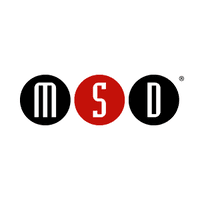
What’s Your Strategy for Attracting and Hiring New Grads?
Guest Post by James Ellis, Principal of Employer Brand Labs
May 23, 2023
Tis the season of new grads. And while your company has high hopes to reinvent the biotech and biopharma industry with your innovative approach to drug discovery, drug development and the like, you probably need a bunch of new grads to staff the bench.
Do you know who else needs to hire those new grads by the metric ton? All the major pharmaceutical companies, both in the US and abroad.
So you are faced with what seems like an impossible problem: How does your company, perhaps consisting of 400 or 1,000 employees (or perhaps much less) compete with companies quite literally 100 times bigger?
It seems like a rigged game, right?
Let’s take a lesson from another example of a rigged game. Moneyball.
If you’ve read Michael Lewis’ excellent book or watched the Brad Pitt version (I have read the book seven or eight times myself and I don’t even like baseball), you might assume the lesson is in metrics, that finding the right “stats” will allow a company to win. That’s not exactly true.
The real lesson is: how does a smaller [team, force, company] compete against far bigger and stronger [team, force, company]? Put another way, how does an under-financed team win a game rigged against them?
And the answer is a smarter strategy. In Moneyball’s case, the strategy used was a disregard for standard metrics and leveraging new ones to find undervalued players.
So what is your strategy?
The mistake is to play the game of “generations.” Publications love to hype this trend or that trend and attribute sweeping shifts of perspective and attitudes to GenZ or Millenials before them. But that is trying to paint with a brush the size of Nebraska. If I asked you what new grad baby boomers were like in 1965, you’d have assumed they were all hippies preparing to hitchhike to Haight-Ashbury having heard a sitar for the first time on The Beatles’ Rubber Soul. But in 1965, Americans under the age of 25 were more in favor of going to war in Vietnam than those older than 50. These ideas of “generations” aren’t always useful when planning how to reach them.
Instead of focusing on the generation, the smarter play is to focus on the situation.
New grads have a number of things in common: They have just spent a great deal of time with their head down trying to ground out those last papers and projects to reach the holy land of graduation, a land with as much trepidation as anticipation. These grads may never have had a job before. They don’t really know what they need to look for.
In so many ways, these folks may have strong technical skills, but they are newbies at looking for a new role. They don’t know what they don’t know in terms of what they should look for in the role. They don’t know the pitfalls. They don’t know the questions to ask.
Add onto that all the uncertainty and fragility around the current economic situation and job outlook. While Covid made some pharma and biotech companies look like saviors, it destabilized the entire industry. In 2022 we saw any number of smaller biotechs shed staff and adjust earnings/pipeline expectations all while larger pharma companies were absorbing that talent as fast as they could get their hands on it.
It is not a rosy picture.
But buried deep in that mess is a potential solution. Larger companies are going to be able to advertise and highlight all their resources and reach, the name recognition, the opportunities potentially available, and the benefits of scale.
Those large companies won’t talk about the downside of that scale. The bureaucracy. The lack of urgency and pace. The living and dying by a number on a stock ticker. The politics. They don’t mention the stats that it is highly likely that someone spending their entire career at a large pharma company may never actually see a compound they worked on making it to market.
Lean into that new grad’s perspective. If they came out of a research university, they likely felt the limitations and red tape that came with working within a large institution. Why would they join another?
Chances are, as newbies, they might not have a complete appreciation of what joining a large company entails. The good and the bad. They are not connoisseurs of biotech opportunities. Yet.
Rather than let them make a decision without all the facts, it is to your advantage to teach them how to see the good and the bad more clearly. It isn’t an advantage because you can spin things in your direction, but because you are offering knowledge they don’t yet have so that they may make an informed choice. Help them put on sunglasses to not be dazzled by the big name.
By offering more of a map of the opportunities, yes, some new grads will dive straight for the big names. That’s fine. They were never going to be swayed by what you offer. Everyone else, however, will now understand the nature of their choice (and the opportunity costs therein) and be more interested in what you have to offer.
And that leads us to the second stage of your strategy: credibility and clarity.
Having looked at the career sites of more than a dozen large pharma companies, companies at these sizes are forced to lean on broad positive messages rather than specific and credible ones. They talk about how big they are, the number of employees who report they are satisfied at work, that theirs is a #1 supplier of this or that, all accompanied by pictures of modern buildings, some in far-flung locations.
That’s great, but what does that mean to a new grad? Are they going to go back in time to help develop these drugs that are the #1 this or that? Will they get to work in Switzerland, Japan or New Zealand? And just because 90+% of employees are satisfied, what’s to say the new grad will be, too?
This is where you can leverage your size to your benefit. You can show off not just “a” hiring manager, but their new hiring manager. You can talk about what they might be working on Week 1. You can talk about the benefits in terms of their specific situation rather than what they look like for 100,000 employees across five continents.
Big claims may attract applications, but credibility creates new hires.
So as you gear up for your new grad season, ask yourself, how can you educate this new class about the reality of work today? How can you leverage your staff’s experience in large pharma to paint a more clear picture of what you offer versus what they offer? And what can you do to develop your credibility and prove the things you say?
Building a strategy that speaks to your strengths and your competition’s weaknesses will make for a better hiring season.
- About the Author
- Latest Posts
James, principal of Employer Brand Labs in Chicago, is a born employer branding nerd whose mission is to create a million employer brand thinkers. He is an author, keynote speaker, practitioner, and podcaster with a wealth of experience across multiple industries for almost a decade. James’ achievements include authoring what’s been called the bible of employer branding, managing the number one employer brand newsletter in the world and helping companies globally establish and develop their ability to hire talent.








